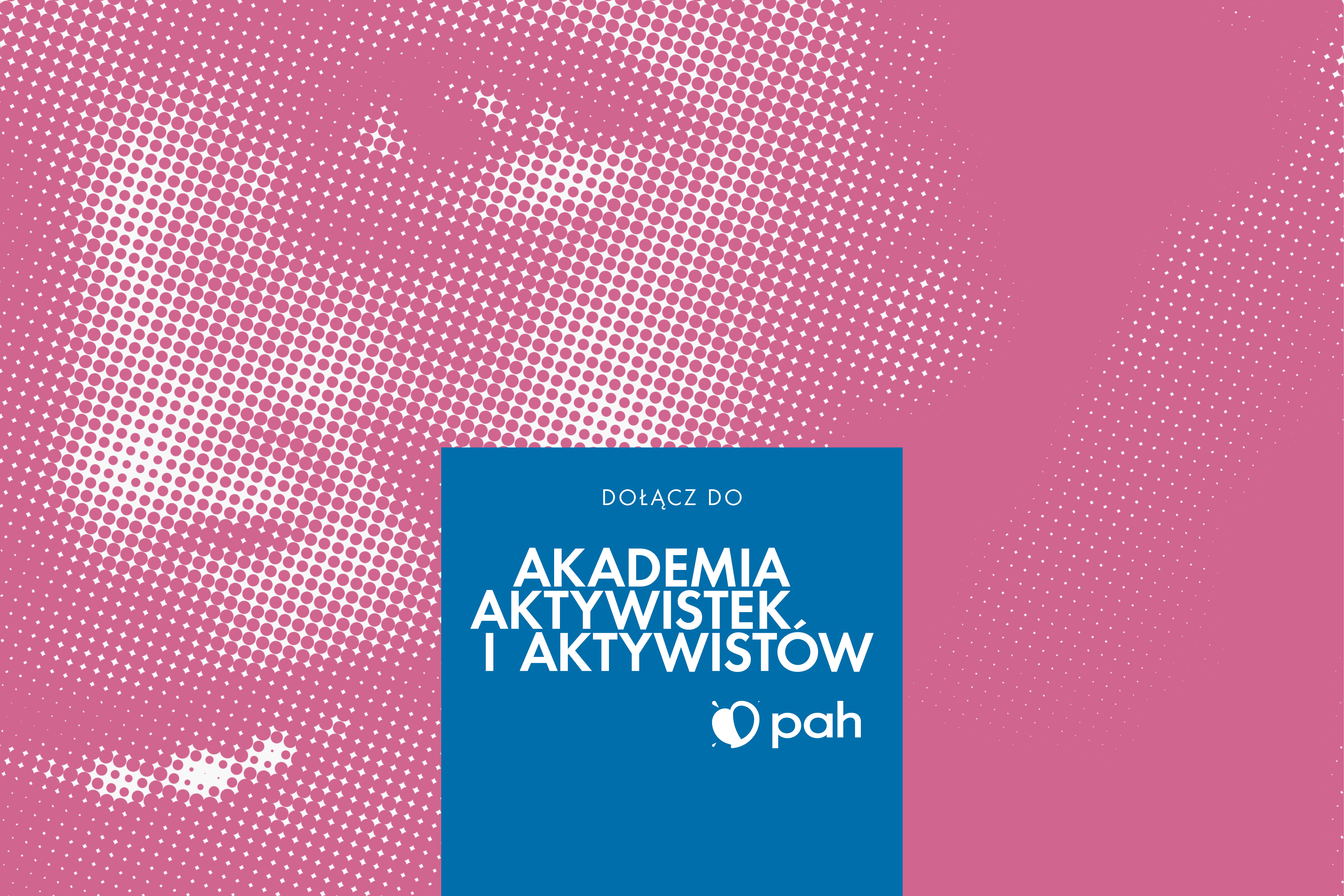It takes people to bring about every important change. It is wonderful that you are here with us and that you want to act! In this tab, we will introduce you to the community created thanks to the DOM platform. Join us! Working together, we can achieve more!
Dołącz do nas
The Academy of Activists of the Polish Humanitarian Action is a series of webinars and workshops whose aim is to show how hate speech works and how we can counteract it. It was created for people for whom safety on the Internet is important. For people who want to get involved, who know that together we can create a response to hate speech and reduce its harmful reach on the Internet.
During the webinars and workshops of the Academy, you can learn about hate speech on the Internet that affects people who receive aid from the Polish Humanitarian Action on a daily basis – people living in countries struggling with humanitarian crises: the refugees. We try to understand where such mechanisms come from, how they work, and what their consequences are. We look at the cultural and historical conditions that lead to such phenomena. We contemplate who persons subject to hate speech are for us.
To make complex content easier to understand webinars are enriched with illustrations. Most entries are in Polish. To make this content easier to comprehend, we also publish translations into English. All webinars that have already taken place are available on our platform.
All webinars are led by journalist Agata Kasprolewicz (Raport z przyszłości), accompanied by visual notes created by Edyta Emme (Myślenie Wizualne).
WEBINAR 1: “I HATE!” Does collective fear and ignorance cause hate?
For whom life in Poland is easier and for whom it is harder? What is the cause of hatred and what are its cultural, historical, and economic determinants? What function can hate play in society, and what if society expects from us something that we fear?
WEBINAR 2: WHAT IS THE SOURCE OF FEAR?
A failure to deal with fear lies at the bottom of many life difficulties. Felt every day, fear can pose a threat to mental and physical health, and in a broader perspective, also seriously affect the social order. Under its influence, we perceive the world around us in a distorted way. We enter relationships with new people with reserve and reluctance. We distance ourselves from the unknown. The outside world can appear perilous. Understanding the nature of one’s fear is essential to improving our quality of life. By approaching other people, empathizing, enjoying, and loving.
WEBINAR 3: THE GAME OF RACES. HOW CAPITALISM DIVIDES TO RULE
The topic of the meeting is racism – a belief that one race is superior to another. It is a heterogeneous phenomenon, and it can be effectively analyzed only in a clearly outlined historical context. Our field of research will be capitalism, i.e. an economic system based on private property. We will look at how this system divides and rules, creating hierarchies and identity contradictions. An example that we will subject to detailed analyses is Eurocentrism, which takes the form of colonialism, culturalism, and orientalism.
WEBINAR 4: SO YOU CAN’T EVEN TELL A JOKE ANYMORE?
Microaggressions, jokes, words implying otherness – discrimination in everyday life can take on seemingly harmless forms. What is humor for and does it have to be black? Is it there to relieve tension or to deal with it? How long does it take society to accept changes in language? How to make others more sensitive in their everyday language use? Who carries out this process and how? What is happening with the Polish language today? What kind of developments and fashions is it currently undergoing?
WEBINAR 5: (POST-)POST-TOURIST
Tourism is an extremely interesting social phenomenon. Due to constant development, it is one of the keys to understanding the modern world. It is a movement in which the inhabitants of the rich North go on vacation to the countries of the South. Hundreds of millions of intercultural encounters each year add up to form relationships between entire societies. This is how billions of photos, videos, stories, and TikTok messages are created. It is a comprehensive documentation of exchanges among cultures. A tourist aware of global interdependencies, causes and consequences of tourist behaviors as well as conscious of being subject to psychological, commercial, and ideological processes is a post-tourist. Where does he go? What kind of accounts does he prepare? What is he talking about and to whom is he addressing his words?
Activist Group
Thanks to the webinars, a whole community involved in our activities has gathered. Among other things, a Facebook group has been set up. This is a place where we can share our experiences and insights. In this safe space, you can motivate each other to act and cooperate in the way that is best for you. This is the group for you and you are all welcome! Most of the posts are in Polish but do not let it discourage you, as the group is also open to communication in English.







